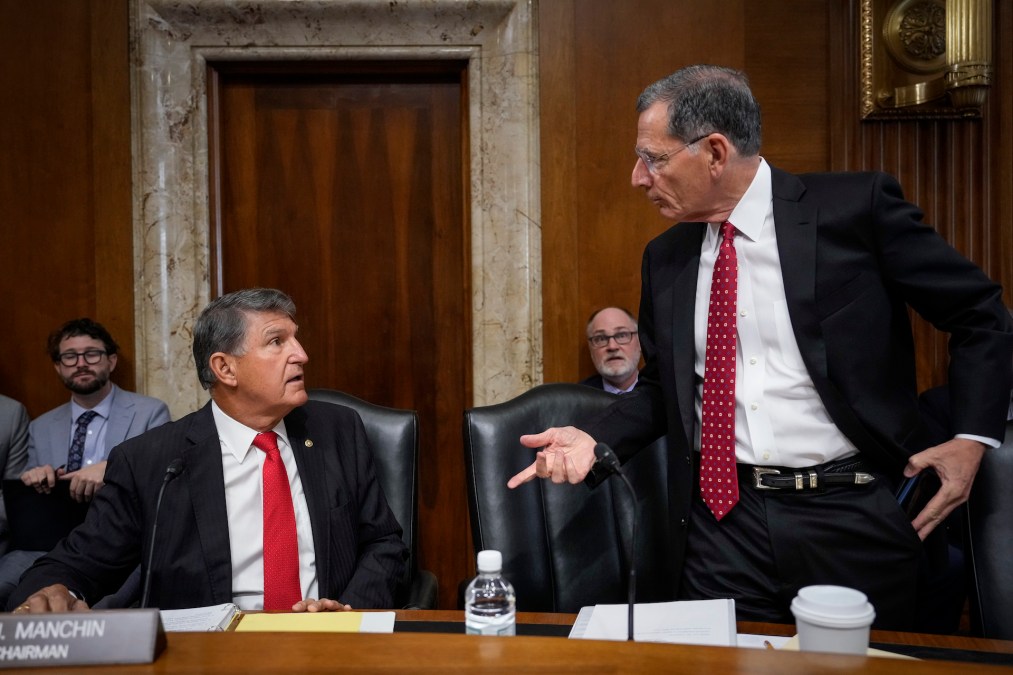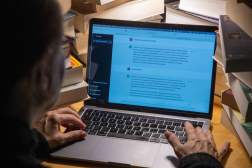At Senate hearing, lawmakers zero in on federal AI research goals, risks

The Senate Committee on Energy and Natural Resources held a hearing Thursday focused on technology competitiveness and the Department of Energy’s research on artificial intelligence — a reflection of Congress’ increasing interest in both incubating and regulating the emerging technology.
At the hearing, lawmakers pointed to the significant role the DOE plays in researching artificial intelligence — and expressed concerns over U.S. progress on AI, including efforts to protect research and build a domestic AI workforce. At one point, Sen. Angus King, I-Maine, even instructed ChatGPT to write a poem about Sens. John Barrasso, R-Wyo., and Joe Manchin, D-W.V., to illustrate the power of the technology.
“AI is already changing the world at a remarkable pace. We’re seeing it deployed in battlefields across the world. Ukraine has successfully used AI-enabled drone swarms against the Russian forces,” said Manchin at the hearing’s opening. “But make no mistake: artificial intelligence also presents many risks.”
Speakers at the hearing included Energy Deputy Secretary David Turk; Rick Stevens, Argonne National Laboratory’s associate laboratory director for computing, environment and life sciences, Georgetown Center for Security and Emerging Technology senior fellow Anna Puglisi; and Andrew Wheeler, Hewlett Packard Labs fellow and vice president.
Several topics came up in the hearing, including U.S. competitiveness with China, the threat of misinformation, the state of American supercomputers, and the prospect of using AI to combat natural disasters, including wildfires.
The issue of watermarking — a method of denoting material that’s created with the help of AI — was also discussed, though Stevens, from Argonne, noted that there were rogue players and AI developers outside the United States wouldn’t be bound by American laws ordering companies to institute the practice.
Notably, the Department of Energy recently released its updated AI inventory, a list of AI use cases that the agency is using or plans to deploy. Many of these use cases from the work being done at national laboratories.




